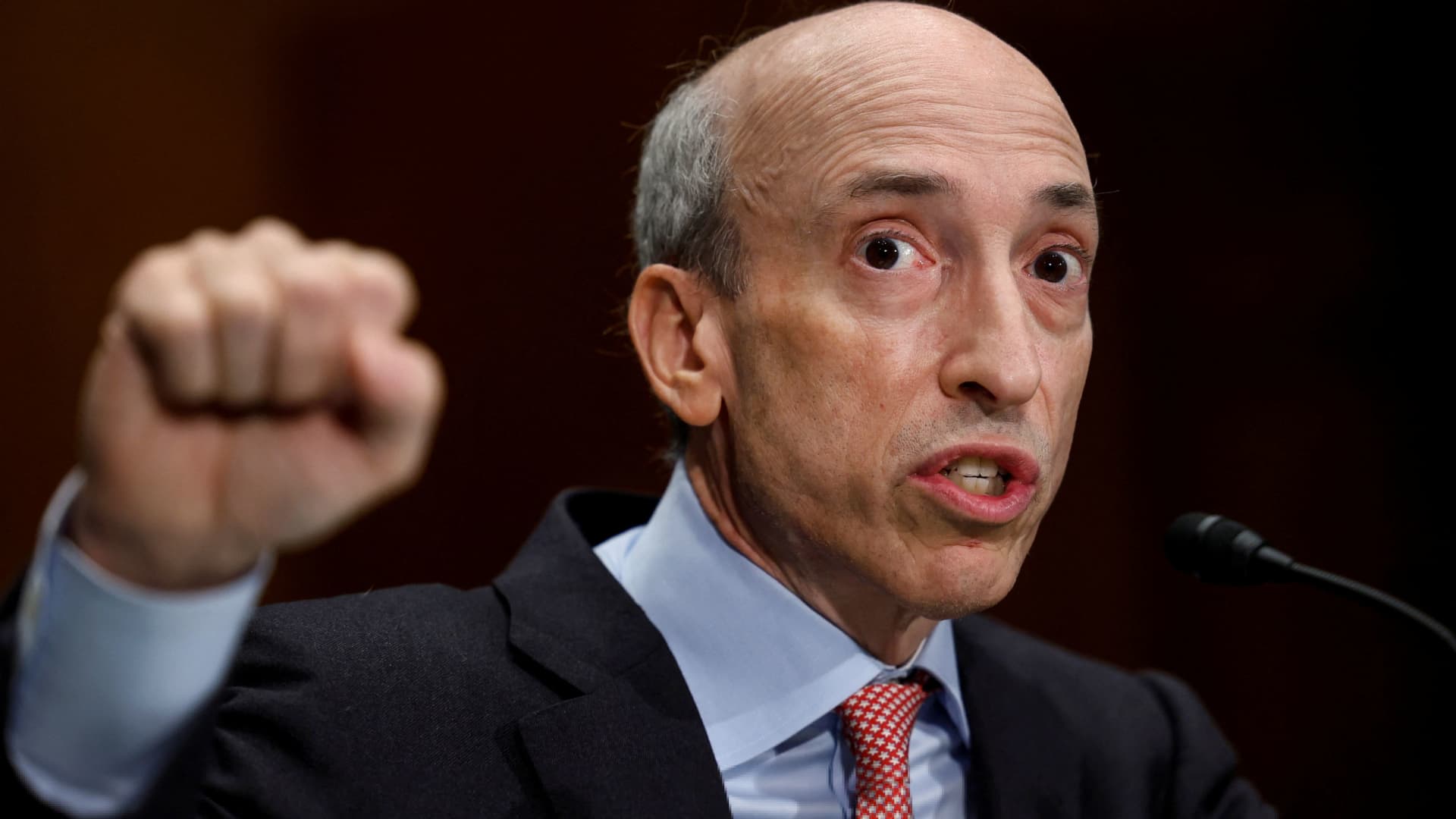The current crypto frenzy is “reminiscent of what we had in the 1920s before the federal securities laws were put in place,” said U.S. Securities and Exchange Commission Chairman Gary Gensler. “Hucksters. Fraudsters. Scam artists. Ponzi schemes. The public left in line at the bankruptcy court.”
Speaking remotely at the Piper Sandler Global Exchange and FinTech Conference in New York City, Gensler said most crypto tokens are securities and come under the purview of the SEC. He also reiterated exchanges that list such tokens must register with the regulatory agency.
“The crypto securities markets should not be allowed to undermine the well-earned trust the public has in the capital markets,” Gensler said. “The crypto markets should not be allowed to harm investors.”
The SEC this week brought separate actions against Binance and Coinbase, alleging they had unlawfully offered securities intermediation functions without registering them with the regulatory agency. The agency also alleged Coinbase commingled its exchange, broker-dealer and clearinghouse functions. The SEC also accused Binance of commingling investors’ assets.
Gensler: Most tokens are securities
“Congress included a long list of 30-plus items in the definition of a security, including the term ‘investment contract,'” Gensler said.
He added that “the vast majority of crypto tokens meet the investment contract test. … Thus, crypto security issuers need to register the offer and sale of their investment contracts with the SEC or meet the requirements for an exemption.”
Gensler aggressively pushed back against those in the crypto industry who say the SEC has not defined what is and is not a security.
“When crypto asset market participants go on Twitter or TV and say they lacked ‘fair notice’ that their conduct could be illegal, don’t believe it,” he said. “They may have made a calculated economic decision to take the risk of enforcement as the cost of doing business.”
Gensler also reiterated crypto exchanges fall under the SEC’s purview. ”Given that most crypto tokens are subject to the securities laws, it follows that most crypto intermediaries have to comply with securities laws as well,” he said.
“These alleged failures deprive investors of critical protections, including rulebooks that prevent fraud and manipulation, proper disclosures, segregation of customer assets, safeguards against conflicts of interest, oversight by a self-regulatory organization, and routine inspection by the SEC.”
Gensler blasted crypto exchanges that have failed to separate themselves from broker-dealer functions.
“Rich, if one of your earlier speakers said they were combining these functions or that they were surreptitiously trading against their customers without complying with our rules, no one in this room would stand for it,” Gensler said to Rich Repetto, the chair of Piper Sandler’s conference and the firm’s senior research analyst.
Gensler says crypto firms ‘know how to register’
In a question-and-answer segment with Repetto, Gensler rejected complaints from crypto firms that the path to registration is unclear, saying these companies “know how to register.”
Gensler was also asked whether Congress needed to pass comprehensive crypto legislation. He did not directly answer the question but dismissed arguments that the rules on which assets are or are not securities are too murky.
“Not liking the answer is not equivalent to a lack of clarity,” he said.
Gensler made no reference to allegations by Binance’s lawyers that he offered to be an advisor to the crypto exchange in 2019. At that time, Gensler was teaching at the Massachusetts Institute of Technology’s Sloan School of Management.
No timetable on market structure, payment for order flow rules
Separately, Gensler said proposed rules on market structure, including one addressing payment for order flow, had generated 20,000 comment letters. He declined to offer a timeline on when a final determination on whether to adopt the rules would be made.
